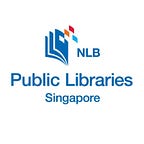Does Reading Fiction Build Empathy?
In a 2015 exchange, Barack Obama told American novelist and essayist Marilynne Robinson that the most important things he learned about being a citizen came from novels. He said it “had to do with empathy, with being comfortable with the notion that the world is complicated and full of greys, and that it’s possible to connect with somebody even if they’re different from you”.
In fact, the seeding of empathy through reading has a scientific rationale. Reading fiction stimulates the emotional areas of our brains when we identify with the feelings and experiences of book characters, even as we read in remote isolation within our nooks.
In this article, we talk to Rita Carter, one of the speakers for the National Library Board’s series of conversations, Reading in the Age of Distraction. Rita is an award-winning science writer, lecturer and broadcaster who specialises in topics surrounding the human brain and the science behind reading.
In simple terms, can you explain what happens to our brains when we read?
Reading itself, whether it’s an instruction manual or a romantic novel, activates many neural pathways — the network that carries the electrical activity which forms our thoughts and feelings. Some of these pathways are formed when we learn to read, so literacy literally “builds” the brain.
Whatever you’re reading also calls on other parts of the brain. It might make you think, or wonder, or question. If you’re reading an engaging novel which involves the feelings of others, your own emotional brain areas are activated, and this is what makes reading fiction such a pleasure.
How does reading seed empathy in a reader?
The empathy you experience for fictional characters helps to sensitise your brain to the feelings of others, so the effect carries over to the real world. By encouraging you to see things from the characters’ perspectives, novels make your brain better at seeing things from others’ points of view. This is the basis of empathy.
How has fiction played a role in your life? What are some of your favourite fiction books?
I was a fanatic reader as a child and I often “became” someone I had read about after putting down the book. So I acted out things that the character might do — I played Robin Hood quite often, and Sir Lancelot as well. It probably made me a very irritating child, but it has made me very imaginative! I’m sure I would not have ended up a writer myself had I not done so much reading.
My favourite books now are less action-based. The Accidental Tourist is a good example. Ann Tyler is wonderful at creating realistic characters. Pat Barker’s The Regeneration Trilogy about the mental effects of war on soldiers is another book I go back to regularly.
Get the books here:
The Accidental Tourist — Ann Tyler | eBook, Audiobook
The Regeneration Trilogy — Pat Barker | Physical Copy, eBook
In a world full of distractions, what is your advice on how to keep at reading?
It’s easiest to do something when it’s rewarding, so I would advise reading things that give you pleasure, even if they seem silly. Simply doing it often will turn it into a habit, and most people will seek out “better” things to read once the habit is formed. Not that self-improvement should necessarily be the purpose of reading — it should be its own reward!
In her book Reader, Come Home, Maryanne Woolf wrote that reading creates “the quality of immersion that is made possible by entering the articulated thoughts of others”. The cultivation of empathy remains ever relevant today, with books and stories as apertures to understanding and accepting the multitude of experiences.
If you missed the webinar series Reading in the Age of Distraction, find out what more Rita Carter had to say about reading fiction in the video below:
We publish our articles on our social media channels. Follow us on Facebook and Instagram to get the latest updates on our stories.
-
Text by
Ilyani Suhaimi
National Library Board
